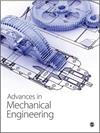无抗剪钢筋膨胀聚苯乙烯(EPS)轻混凝土平板冲剪承载力研究
IF 1.9
4区 工程技术
Q3 ENGINEERING, MECHANICAL
引用次数: 0
摘要
本文对轻混凝土板的冲剪性能进行了试验和理论研究。使用发泡聚苯乙烯(EPS)珠作为部分粗骨料的替代品获得轻质,无需添加补充粘合添加剂,可将混凝土密度从2400 kg/ m3降低到1800 kg/ m3。EPS含量、混凝土强度、柱长径比为试验参数。用0%、10%、20%、30%、40%(体积)EPS球部分替代天然粗骨料配制五组混凝土。对10块无剪力配筋整体柱钢筋混凝土板进行了同心荷载试验。本研究旨在探讨EPS对混凝土密度和抗压强度的影响,并最终对平板冲压能力的影响。确定了五个系列的混合料,并与常规正重混凝土进行了比较。结果表明:随着EPS含量的增加,混凝土强度的降低速度快于混凝土密度的降低速度;随着混凝土密度的减小,破坏基础面积增大,这与混凝土强度的降低率相比产生了更高的冲孔能力。国际标准模型对冲剪承载力估计过高,没有反映轻量化混凝土的减强作用。本文章由计算机程序翻译,如有差异,请以英文原文为准。
Punching shear capacity of expanded polystyrene (EPS) lightweight concrete flat slabs without shear reinforcement
This work presents an experimental and theoretical study on the punching shear behavior of Lightweight Concrete Slabs. Lightweight obtained using Expanded polystyrene (EPS) beads as partial coarse aggregate’s replacement, without adding supplementary bonding additives, to reduce concrete density from 2400 to 1800 kg/m 3 . The EPS content, concrete strength and column aspect ratio were test parameters. Five groups of concrete prepared by partially replacing natural coarse aggregate with 0%, 10%, 20%, 30% and 40% (by volume) of EPS balls. Ten reinforced concrete slabs without shear reinforcement with a monolithic column were tested under concentric loading. The study aimed to examine the effect of the EPS on the density and compressive strength of concrete and eventually on the flat slabs punching capacity. Five series of mixtures identified and compared with conventional normal weight concrete. Results showed that with increasing EPS content, rate of reduction in concrete strength is faster than the reduction in concrete density. Also, showed that the failure base area increased while the concrete density decreased, this yielded a higher punching capacity compared to rate of decrease in the concrete strength. International standards models showed overestimation of punching shear capacity and didnot reflect the reduced concrete strength action of lightweight concrete.
求助全文
通过发布文献求助,成功后即可免费获取论文全文。
去求助
来源期刊

Advances in Mechanical Engineering
工程技术-机械工程
CiteScore
3.60
自引率
4.80%
发文量
353
审稿时长
6-12 weeks
期刊介绍:
Advances in Mechanical Engineering (AIME) is a JCR Ranked, peer-reviewed, open access journal which publishes a wide range of original research and review articles. The journal Editorial Board welcomes manuscripts in both fundamental and applied research areas, and encourages submissions which contribute novel and innovative insights to the field of mechanical engineering
 求助内容:
求助内容: 应助结果提醒方式:
应助结果提醒方式:


